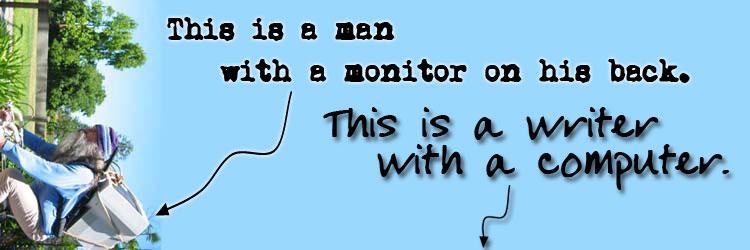Even Steven (despite being born in Korea) doesn’t know everything about living in Korea.
During lunch yesterday, I asked my mom point blank what she thought about the Mission Local profile on me. I had emailed the article earlier to my parents, and my mom responded back, “I never knew that about you. I learned something new.”
“What do you mean?” I asked during lunch.
“That you have confusion,” she said across the round table.
“What kind of confusion?” I said, trying to see if she understood the intent.
“Yes, confusion.”
I falter and give an hint, “Identity?”
“Yes,” she said. “It seems that you’re confused about being Asian and American.”
“No!” I said. “Not about being Asian American. I am satisfied with that. It’s the confusion or really the conflict being an artist and working in tech.”
And that part is true. I am conflicted with the identity of being an artist—the feeling that I should be starving and struggling…that I should have gotten a MFA. That I should be deeply immersed with artist circles. Yet, when I am with them, I don’t feel at ease. When I am surrounded by tech, I feel like myself. But at the same time, it’s likely from familiarity. My body reacts to unfamiliarity and discomfort. So I rest in that middle ground.
But doesn’t that somewhat translate to being Asian American? What I do know is this: I feel even out of my element in Asia, especially in areas where they speak Cantonese. I feel that I should know how to speak the native tongue, but instead awkward words come out and I quickly resort to English. In parts of America, there are times where I feel uncomfortable because there’s this unsaid judgement that I am simply not white. But for most of my life, my obliviousness serves me well in not noticing that.
Several weeks ago, a friend and I ate at the bar of a fancy restaurant. I was quite pleased that we found seats without a reservation. She’s a bit quiet and with her accent, I know that she isn’t born in the states. But a white middle-aged man sat next to us. Without any prompt, he provoked my curiosity as he recommended dishes and drinks. I listened and perhaps enabled him a little too much. At some point, he turned and said, “Where are you from? China? Vietnam?”
I felt my fists clench and spat, “America. I am American”
He paused, his mouth open.
Noticing his surprise, I felt guilty. In the past, I have pressed my whole Americanness onto unsuspecting, naive strangers. It only serves to their confusion as it’s clear that they’re trying to figure out why I am not white. Much like how I am surprised sometimes when a Frenchman is Asian. I admitted, “I was born here in the Bay Area. My parents are from Hong Kong.”
“Oh!” he said, finding his in and I feel a horrible feeling sink inside me. “I love the dumplings and all the food.”
“Uh huh,” I said, realizing that he was trying to find a common subject. I want to say that I don’t like Chinese food, but at that moment, the guilt overcomes everything.
He drones on and at some point as my friend and I are enjoying the second dish, he said, “I am going to say something complimentary.”
“Um, ok.”
“Your hair, what do you use? How do you have so much?”
“Absolutely nothing,” I respond. “And you don’t realize how difficult it is. it means that hair goes everywhere. Everywhere.”
And at some point, it’s a losing battle. So I file this moment under the very few times that I have experienced microaggressions.
